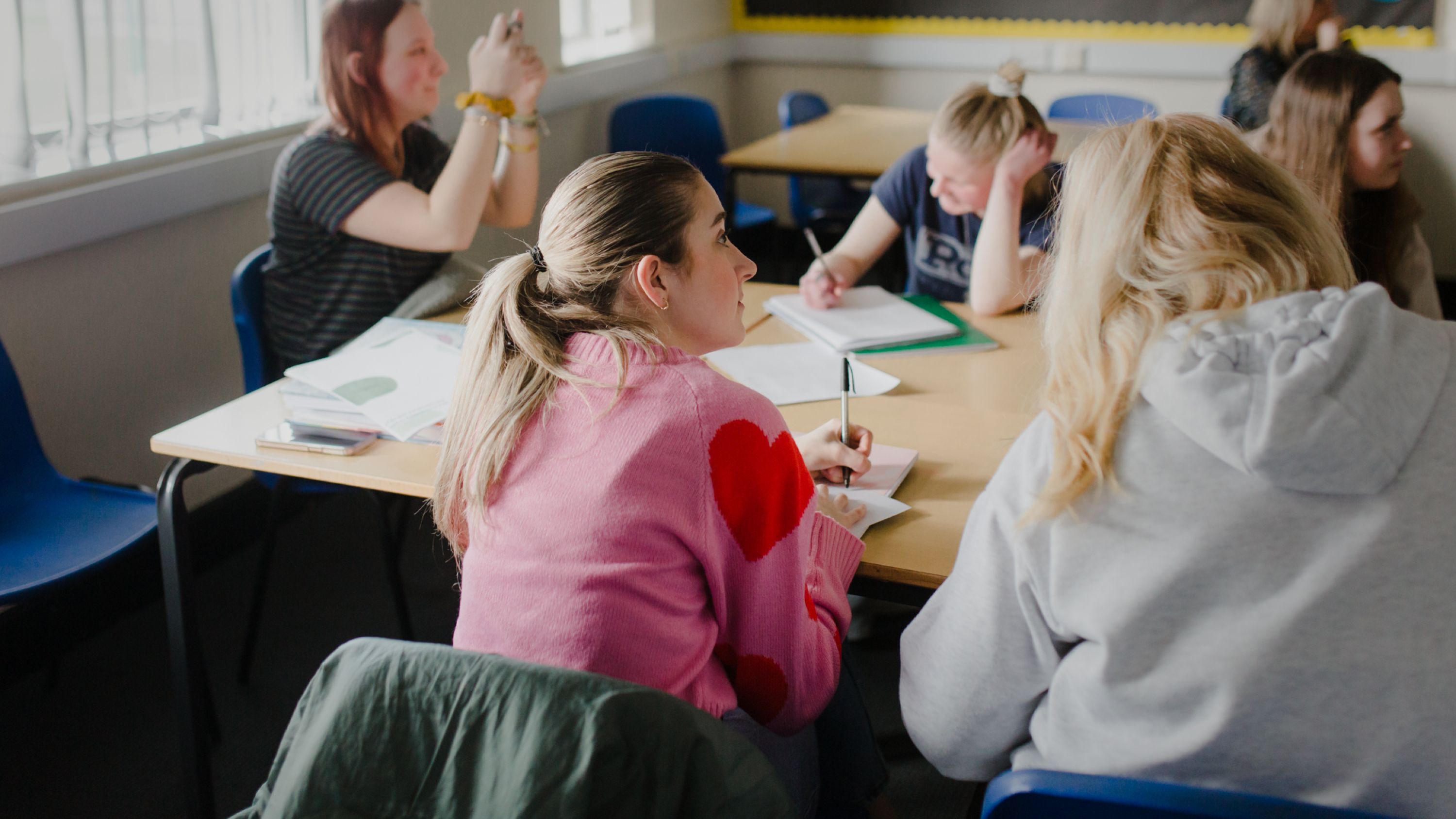Entry Requirements
Grade 5 in GCSE English Language and GCSE English Literature
Alongside the entry requirements for each course, you will also need to achieve the minimum Sixth Form entry requirements.
Assessment
100% Examination
Next Steps
Students can go on to study sociology related courses at university.
Jobs directly related include: Teaching; Social Research; Criminal Justice System; Social Care; Marketing; Policing; Law and Events Management.
A-Level in Sociology
This course is about a lot more than just getting a qualification. Most students leave the course with a real sense of what their society and culture is all about and why they act and think in the way that they do.
Discussion skills are much improved as students frequently have the opportunity to debate and listen to other points of view. Equally, we tend to see that a more confident and fluent written style has developed and that students are well equipped for independent learning and research.
The current specification is being updated but has not yet been approved. There may be changes to the specification content but these will be minor. The exam structure is changing but this is for the better! More information to follow as the new specification is approved.
Ready to Apply?
Course Content
Socialisation, Culture & Identity
The key themes of socialisation, culture and identity are at the heart of this unit. An exploration of these will allow you to focus on your personal identity, roles and responsibilities within society and to develop a lifelong interest in social issues. We look at issues such as gender, disability, ethnicity, age, sexuality and social class and explore sociological reasons for the different identities in society. Our in depth focus in this unit is ‘youth,’ where we consider various youth subcultures such as Skinheads and Punks alongside issues and debates in youth deviance. We might consider the role of drill music, for example, in promoting hegemonic masculinity and violence. We also look at the types of crimes and deviant acts young people are involved in and the reasons for this. Does every young person have the same risk factor when it comes to criminality? Why is this?
Researching & Understanding Social Inequalities
This unit introduces and explores the methods of sociological research and develops your knowledge and understanding of social inequality and difference. It develops links between sociological theory and the practical methods of sociological research so you’ll begin to see what methods and approaches particular sociologists choose and why. You might even get to try some of these out for yourself. When considering inequalities we look at contemporary issues such as the gender pay gap, the widening gap between rich and poor and the ethnic penalty. We hear all the time about how contemporary society is based on equality and fairness…but how true is this? The UK currently has the biggest gap between the rich and the poor in the Western world - how has this happened and why? The Equal Pay Act was introduced in 1970, so why then do some sources claim women still earn on average £500,000 less than males over their lifetime? Fascinating stuff.
Debates in Contemporary Society
In this unit we will examine some key debates and how these relate to a contemporary global society. We consider issues such as relationships and identity in an online age, the impact of globalisation and the digital divide. We look at protest groups, terrorism and how the internet can be used for good and for bad. Consider, for example, the fact that in 2025 The Taliban in Afghanistan has imposed a total internet blackout - devastating for the women and girls in the country who relied on online platforms for their education since they were banned from attending schools after age 12 !
In the second half of this unit we focus on crime and deviance, a topic that our students love. We consider different types of crime, reasons for criminality and how society tries to solve the problem of crime. New crimes are emerging all the time - green crime, hate crime, cyber crime, organised crime - and this leads to a really contemporary feel to this unit.
All in all, this is a course that really considers the world in which we live and some of the key issues and debates that characterise both our wider society and our personal identities.
